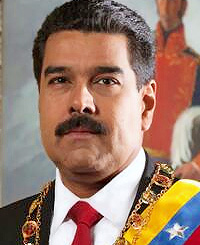
According to U.S. officials and most news accounts, the OAS resolution approved late Tuesday was historic because it calls for an extraordinary meeting of foreign ministers to vote on suspending Venezuela for its sham May 20 election. The resolution passed with 19 votes in favour, 11 abstentions and 4 votes against.
But while that was the clause that drew the most public attention, it was largely symbolic. The 34-country OAS requires 24 votes to suspend any member country, and well-placed Latin American ambassadors tell me that it will be impossible to get the required majority to suspend Venezuela in the foreseeable future.
Many small Caribbean countries still depend on Venezuelan oil subsidies and will not a support any sanctions against Venezuelan President Nicolas Maduro’s regime. The Trump administration tried to twist the arms of several Caribbean countries at the OAS, and failed.
In addition, Maduro will not lose much sleep if he is suspended from the OAS. Cuba has been suspended since 1962, and its dictatorship is still in power. Maduro even says that he will unilaterally withdraw from the OAS, which makes whole matter even more inconsequential.
But, on the other hand, the OAS resolution contains other clauses that will put growing pressure on the Maduro regime.
First, it calls on member states to adopt “the measures deemed appropriate at the political, economic and financial levels to assist in the restoration of democratic order in Venezuela.” This gives legal cover to several governments, such as that of Chile, that want to impose individual financial sanctions against top Maduro regime officials but face domestic legal hurdles in doing so.
Just as important, it will encourage the 28-member European Union to expand its individual sanctions against top Venezuelan officials. While the United States has imposed individual visa and financial sanctions against more than 50 Venezuelan officials, the EU has so far only targeted seven, Venezuelan opposition leaders say.
The EU had been telling Venezuelan opposition leaders that it was finding it hard to expand its sanctions against Venezuelan officials if Latin American countries and the OAS did not take such measures first. Now, with the new OAS resolution, the European Union may expand its list of sanctioned officials to nearly more than 20 in coming weeks, diplomatic sources say.
In addition, it may be used by international financial institutions to limit their assistance to Venezuela. Some diplomats say it could also influence China and Russia — Maduro’s biggest backers — to take a step back from that country, considering that — especially in light of its plummeting oil production — it’s a source of more problems than potential benefits.
Second, the OAS resolution states that the “the electoral process” that led to the May 20 elections, in which leading opposition parties were banned, “lacks legitimacy,” and calls for “a new electoral process.”
This, by extension, infers that Maduro himself is an illegitimate president. It will move several countries to further limit their economic, diplomatic and even cultural ties with Venezuela.
Granted, none of this by itself will cause Maduro to fall, but it will give a much-needed propaganda victory to Venezuela’s opposition, which has been weakened by brutal government repression that left more than 150 dead last year and disastrous internal disputes.
Despite his diplomatic efforts to kill the OAS resolution, Maduro failed to win the support of any of the biggest Latin American countries. Only Bolivia, St. Vincent and Grenadines and Dominica voted in support of his regime.
“For us, this resolution is historic, because it lifts our spirits,” Venezuela’s exiled opposition leader Carlos Vecchio told me. “It sends a powerful message to our people, to our armed forces — to everybody — that we were right, that the whole world is seeing Maduro as an illegitimate president.”
I agree. Whether Venezuela remains in or is expelled from the OAS is a sideshow. In the larger war to isolate Venezuela’s dictatorship, Maduro has lost an important round.





